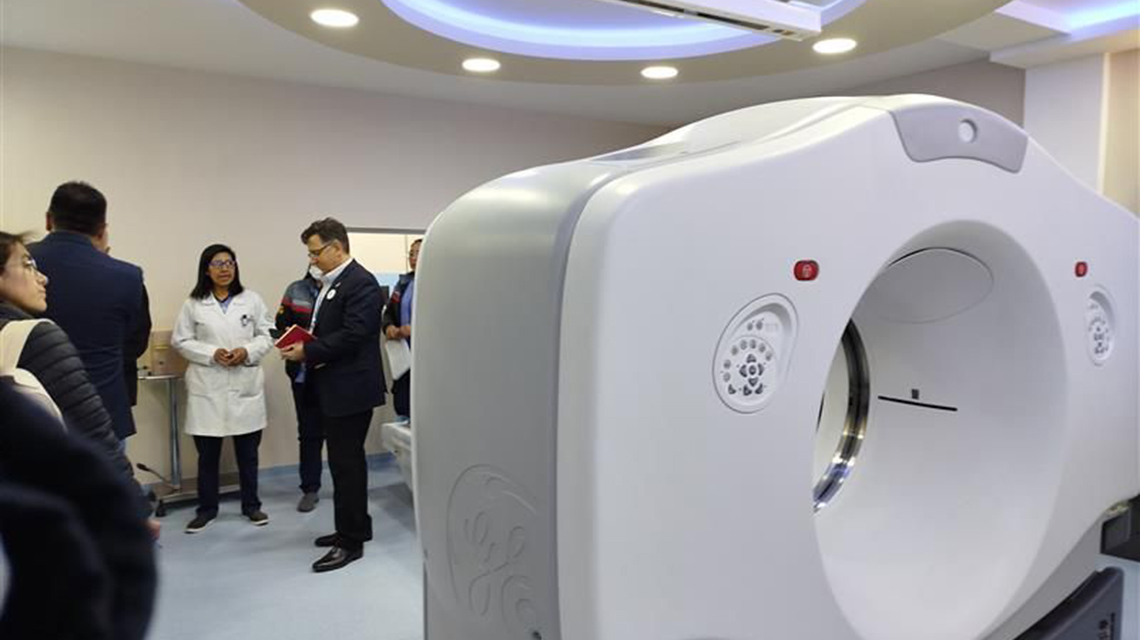Bolivia’s Strategic Initiative to Enhance Cancer Care Infrastructure
Bolivia has embarked on a significant journey to fortify its cancer care system by hosting a comprehensive imPACT Review mission. This mission was spearheaded by the International Atomic Energy Agency (IAEA), in collaboration with the World Health Organization (WHO) and the International Agency for Research on Cancer (IARC). The review extended over ten days in August, during which a team of national and international experts conducted a meticulous examination of Bolivia’s cancer care framework. This included evaluating aspects from prevention and diagnosis to treatment and palliative care, with a focus on identifying current deficiencies and areas ripe for development.
Understanding Bolivia’s Cancer Burden
Bolivia faces a growing cancer burden, particularly concerning cervical cancer, which constitutes a significant 22% of all female cancer cases in the region. Prostate and breast cancers also present notable challenges, accounting for 25% of male and 17% of female cancer cases, respectively, as per Globocan 2022 statistics. Despite initiatives aimed at decentralizing cancer services and promoting collaboration among different health subsystems, most infrastructure and human resources remain concentrated in Bolivia’s major cities: La Paz, Santa Cruz, and Cochabamba. This centralization creates barriers to accessing cancer services, posing persistent challenges to achieving equitable healthcare across the nation.
The Focus on Cervical Cancer
The review placed a particular emphasis on cervical cancer due to its high incidence rate in Bolivia. The government has made commendable progress in expanding human papillomavirus (HPV) vaccination and screening programs, which are pivotal in protecting against cervical cancer. Nevertheless, the imPACT team highlighted the need for further expansion of high-accuracy HPV testing and the importance of raising awareness and improving access to vaccination in underserved regions. Integrating cervical cancer screening with other cancer control initiatives was advised to better coordinate efforts and improve patient outcomes.
"Addressing cervical cancer must remain a national priority given the high incidence in Bolivia,” stated Vice Minister Mariana Ramírez during the mission’s concluding remarks. “Expanding access to early screening and HPV vaccination is essential for saving lives," she emphasized.
Enhancements in Cancer Diagnosis and Treatment
Bolivia has made substantial strides in acquiring the technology required to ensure the timely and accurate diagnosis and treatment of cancer across the country. However, the distribution of infrastructure, technology, and human resources within the public cancer care system remains uneven. Patients often encounter long delays and extended waiting lists and may have to travel to the capital to receive adequate diagnosis and treatment. One of the critical recommendations of the imPACT Review was to establish agreements among health subsystems to optimize the utilization of diagnostic tools and medical equipment. Investments in radiotherapy and nuclear medicine were also identified as crucial, given that many cancer patients lack access to essential treatment options. Ensuring regular maintenance and modernization of equipment was advised to help Bolivia uphold high-quality care standards.
"Improving the efficiency and capacity of Bolivia’s diagnostic and treatment systems is not only urgent but feasible,” noted Ramírez. “By maximizing the use of available resources and investing in the necessary equipment, we can significantly reduce the burden of cancer in the country."
Strategic Recommendations for Progress
To address these challenges, the imPACT Review mission laid out several strategic recommendations. These include:
- Decentralizing Services: Expanding cancer care services beyond major cities to ensure that people in remote and rural areas have equitable access to care.
- Enhancing Screening Programs: Increasing the reach and effectiveness of screening programs, particularly for cervical cancer, by integrating them with other public health initiatives.
- Resource Optimization: Forming partnerships among various health subsystems to share diagnostic tools and technology, thus maximizing existing resources.
- Investing in Technology: Prioritizing investments in radiotherapy and nuclear medicine to expand treatment options available to patients across Bolivia.
- Training and Education: Focusing on the continuous training and education of healthcare professionals to improve the quality of care.
- Public Awareness: Launching awareness campaigns to educate the public about the importance of early detection and vaccination, particularly for preventable cancers like cervical cancer.
The Path Forward
The insights and recommendations from the imPACT Review mission pave the way for Bolivia to strengthen its cancer control system. By implementing these strategies, Bolivia can work towards achieving equitable cancer care for all its citizens, regardless of their geographic location. This mission underscores the importance of international collaboration and the sharing of expertise to tackle pressing health challenges.
Global Perspective
Bolivia’s efforts resonate with global trends where countries are increasingly focusing on strengthening their healthcare systems to address the rising burden of cancer. Initiatives like the imPACT Review mission exemplify how international organizations and national governments can collaborate to facilitate knowledge exchange and improve health outcomes. By learning from such initiatives, other nations can also enhance their cancer care systems and work towards reducing cancer-related mortality and morbidity.
Conclusion
Bolivia’s proactive steps in assessing and enhancing its cancer care infrastructure demonstrate a commitment to improving health outcomes for its population. By addressing the challenges of centralization and optimizing resources, Bolivia aims to provide better access to cancer care services for all its citizens. The imPACT Review mission’s recommendations serve as a valuable roadmap for Bolivia to continue advancing its cancer control efforts, ultimately saving more lives and improving the quality of life for those affected by cancer.
For more detailed information about the mission and the organizations involved, you can visit the World Health Organization and the International Agency for Research on Cancer websites.
For more Information, Refer to this article.

































